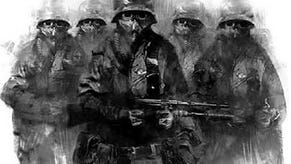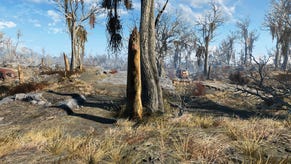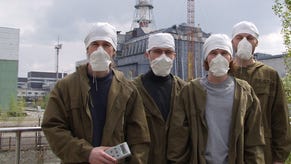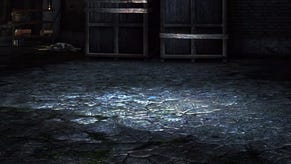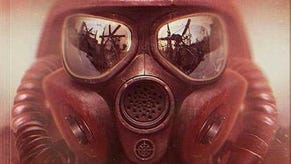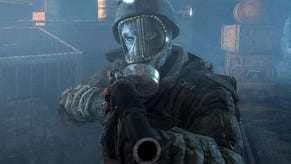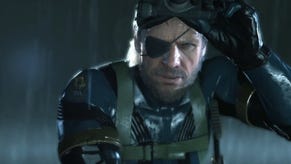Metro 2033
Russian hour.
It's been a tough couple of weeks. Straight from reviewing S.T.A.L.K.E.R.: Call of Pripyat, Tom drafts me in for a hands-on trial of another dark nuclear slaughterfest: THQ's newest shooter: Metro 2033.
Not that I'm complaining. Playing games for a living is a great result in almost anyone's book, and the fact is I've thoroughly enjoyed both titles. All the same, I could do with some sunshine and a bit of fresh air.
Like S.T.A.L.K.E.R. (be prepared to see that a lot over the next couple of pages), Metro is a post-nuclear disaster horror-shooter with RPG elements, based on a successful Russian novel. It's grim and grimy, full of browns, greys and splashes of vivid red gore.
Unlike S.T.A.L.K.E.R., Metro is set in a whole world where everything has gone melty and unpleasant, rather than just a sward of Ukrainian landscape. The only apparent survivors in Moscow, and to all intents and purposes the world, are those lucky enough to have been travelling on the city's extensive Metro network when the attacks took place. These deep tunnels sheltered a tiny sliver of humanity beneath the surface, along with just enough salvageable resources to keep them alive.
Stations are the cities of this new world. They're where pockets of refugees eke out a living in terrible, cramped conditions, doing whatever they must to prolong a nightmare from which the only release is death. Social order begins to emerge as communities arm themselves and conduct salvage trips to deeper parts of the Metro network, gathering the materials and equipment necessary to make their first tentative steps out onto the ruined surface.
But remember, this is a game, and a post-apocalyptic one at that. Nothing's going to be that easy.
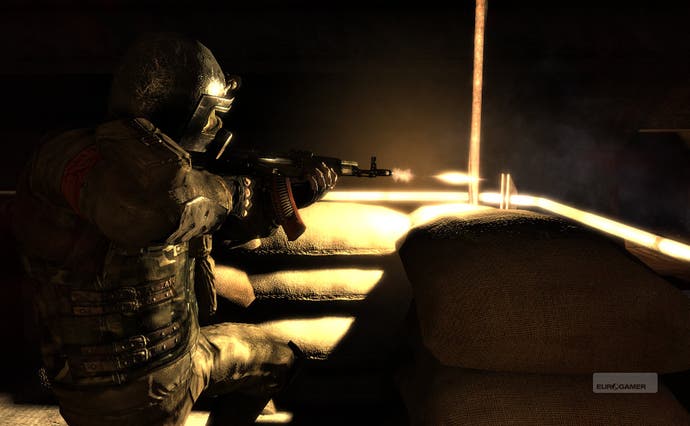
So the mutants turn up. Horrible, drooling bastard monkey-wolves with a nice line in biting your pancreas out. Russians are tenacious types, though, and not easily turned, so they fight back. People and stations are lost, tactics and lessons learned.
A stalemate of sorts is reached, with the remnants of society able to just about hold their ground against the bubbling horde. Then something new starts to stalk the tunnels, a mysterious force with the power to attack minds. Something darker, more dangerous and even more dribbly than the monkey-wolves.
That's where you come in.
The game's protagonist is a young man called Artyom who leads a relatively unremarkable life in the slums. Until, that is, he's suddenly lumbered with the task of saving civilisation from certain destruction. Bang goes that quiet Sunday morning in the local underground pub with the papers, then.
Saddling up with a home made SMG and a dynamo-powered headlamp, you jump on the first handcart out of your home station and into the tunnels. But that's not how the game starts. Instead we're treated to one of those increasingly popular flash-forward doodads featuring some clever Modern Warfare 2-style integrated event scripting. Without giving too much away, there's a hefty cliffhanger to consider when the clock is swept back 8 days to the beginning of Artyom's adventure.
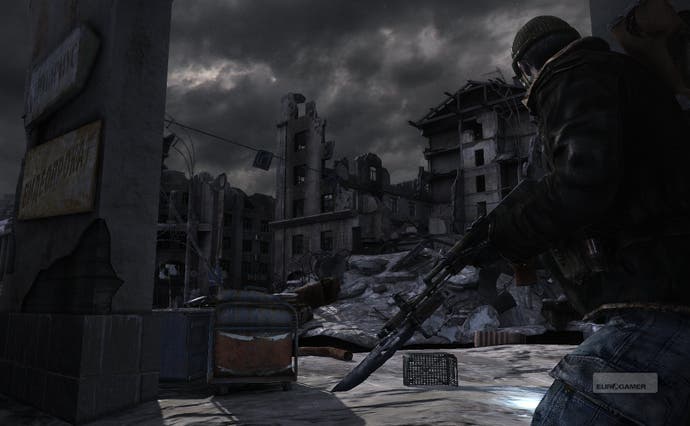
It's a specific time-frame and it's a testament to Metro's focussed, linear story-telling style. This isn't a game of free-roaming exploration and open-world mission structures. Developer 4A has chosen a distinctly scripted approach to the tale - perhaps a legacy of its literary roots. The self-contained levels are very much start-to-finish affairs, with no hubs or destination choices. It's an effective choice as the story unfolds in a thought-provoking style, if one which is a little loose.
Early sections of the game are very tunnel heavy, with the sort of corridor funnelling which this provokes, but there are larger areas to poke around in on the surface. You'll also find plenty of blind alleys and dead-ends in the underground which hold valuable stores of weapons and precious ammunition. Post-war production facilities are extremely limited, both in terms of machinery and materials available, so human ingenuity has become the most important resource in the chain of manufacture.
Guns are often makeshift, homebrew affairs such as the curiously effective pressure rifle or the arrow-launching Poseidon pistol. Even bullets are inferior in the Metro, with the occasional caches of pre-war munitions doubling as currency if you're economical and skilled enough to keep them out of your clip. Get yourself in a tight spot and these cartridges can be fired to great effect, but you'll be costing yourself a fortune for every kill.


